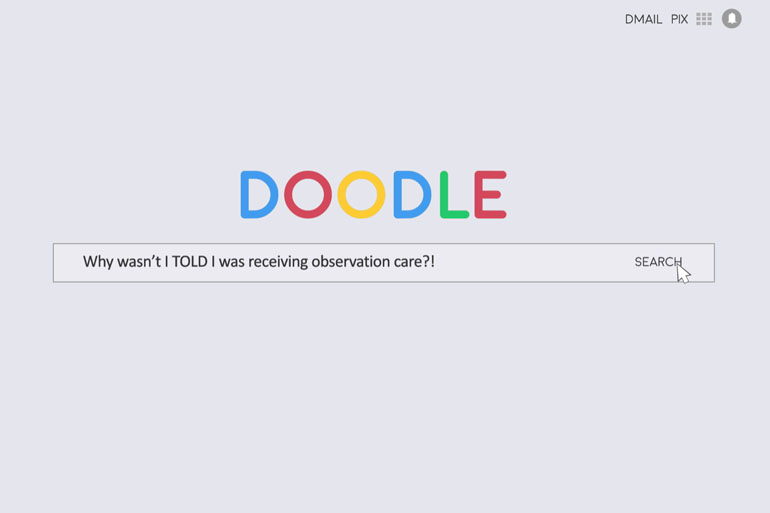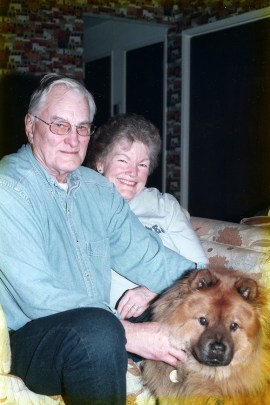
Starting this month, California hospitals must comply with a new federal law that requires them to notify patients when they are in observation care and explain why they are not officially admitted even if they stay a few nights. That’s on top of a state notice law that took effect in January.
In the past, California seniors often were unaware they had not been admitted until they received surprise bills for services Medicare doesn’t cover for observation care patients, including some drugs and — more important — expensive nursing home stays.
When patients are too sick to go home but not sick enough to be admitted, observation care gives doctors time to figure out what’s wrong. It is considered an outpatient service, like a doctor’s visit, and patients pay a share of the cost for each test or treatment, unless their care qualifies for a new Medicare bundled payment.
Observation care is especially worrisome for seniors, because Medicare pays only for follow-up nursing home care if they have a prior hospital admission of at least three consecutive days. Observation time doesn’t count.
The notice requirement may cushion the shock, but it probably will not settle the issue.
California’s notice law, sponsored by Sen. Ed Hernandez (D-West Covina) and overwhelmingly approved by state lawmakers last year, requires hospitals to inform all patients, not just Medicare beneficiaries, no later than 24 hours after being put in observation care — and sooner, if possible.
The federal law, which kicked in March 8, also requires notice, though it gives hospitals more time than the California law, allowing them to notify Medicare patients between 24 and 36 hours after observation care begins (or before a patient is discharged or admitted). However, it goes beyond the state law by requiring that hospitals use a standardized form that includes space to explain why patients were not admitted. The state law does not oblige hospitals to provide this explanation.
The California Department of Public Health has told hospitals they must abide by the state’s shorter notice period and use the federal form for their Medicare patients.
“Hospitals don’t want patients to be shocked and surprised when they receive a bill,” said Debby Rogers, the California Hospital Association’s vice president of clinical performance and transformation. “The more hospitals can do to educate and inform patients while they are within the four walls of the hospital, the better we are serving our patients.”
Better information would have helped Suzanne Mitchell, of Walnut Creek, Calif., when her 94-year-old husband, Ted, fell and was taken to a hospital last September. She was told he would be admitted, but it was only after seven days of hospitalization that she learned he had been an observation patient. He was due to leave the next day and enter a nursing home, which Medicare would not cover. She still doesn’t know why he wasn’t admitted.
“If I had known [he was in observation care], I would have been on it like a tiger because I knew the consequences by then, and I would have done everything I could to insist that they change that,” said Mitchell, a retired respiratory therapist. “I have never, to this day, been able to have anybody give me the written policy the hospital goes by.”
Her husband was hospitalized two more times and died in December. His nursing home sent a bill for nearly $7,000, which she has not yet paid.

Suzanne Mitchell learned that her husband, Ted, had not been admitted to the hospital only after he had been there for seven days. He later passed away. (Courtesy of Suzanne Mitchell)
The new federal notice requirement is now one of the conditions hospitals across the United States must meet in order to be paid for treating Medicare beneficiaries, who account for about 42 percent of hospital patients on average. But the most controversial aspect of observation care hasn’t changed.
“The observation care notice is a step in the right direction, but it doesn’t fix the conundrum some people find themselves in when they need nursing home care following an observation stay,” said Stacy Sanders, federal policy director at the Medicare Rights Center, a consumer advocacy group.
Medicare officials have wrestled for years with complaints about observation care from patients, members of Congress, doctors and hospitals. In 2013, officials issued the “two-midnight” rule. With some exceptions, when doctors expect patients to stay in the hospital for more than two-midnights, they must be admitted, while those expected to stay a shorter time must be kept for observation. But this policy has not reduced observation visits, the Health and Human Services inspector general reported in December.
Doctors and hospital representatives across the U.S. still have questions about how to fill out the federal observation care form required by the new law, including how to explain why the patient has not been admitted. In a conference call Feb. 28, Medicare officials fielded questions about it from hospital executives and others. They explained that the hospitals must give patients a specific clinical reason for not admitting them, rather than a generic explanation, according to hospital representatives who were on the call.
The federal form also explains that observation care is covered under Medicare’s Part B, and patients “generally pay a copayment for each outpatient hospital service.” But Michael Ross, medical director of observation medicine at Emory University’s hospital system in Atlanta, said that the “wording may be antiquated,” since Medicare revised some billing codes last year to combine several observation services into one category, which means beneficiaries might have only one copayment in some cases.
Most observation visits are less expensive for beneficiaries than a hospital admission if they stay a short time, the inspector general’s report concluded. Ross said doctors should “front load” tests and treatment so that their decision to admit or send the patient home can be made quickly. “If you get them out within a day, they are more likely to go back to independent living as opposed to needing nursing home care,” he said.
This story was produced by Kaiser Health News, an editorially independent program of the Kaiser Family Foundation.

